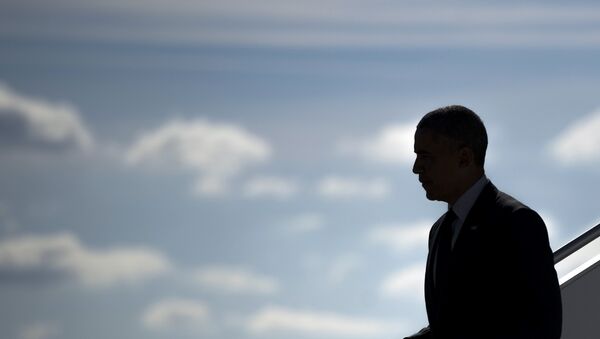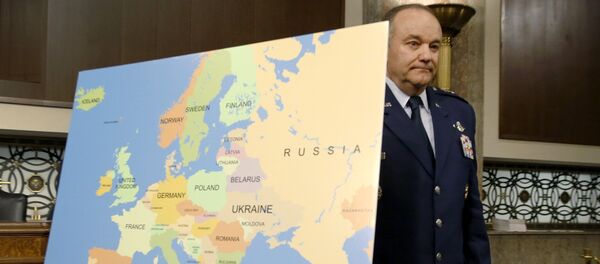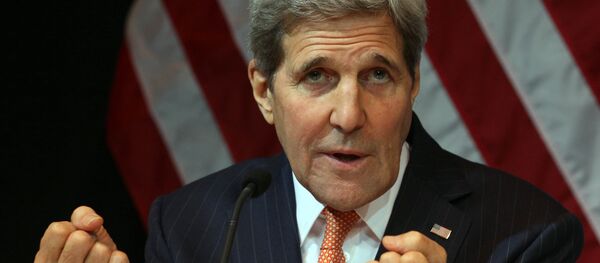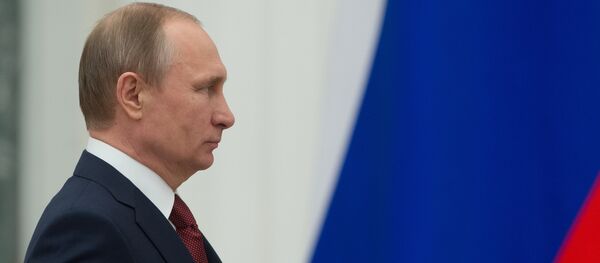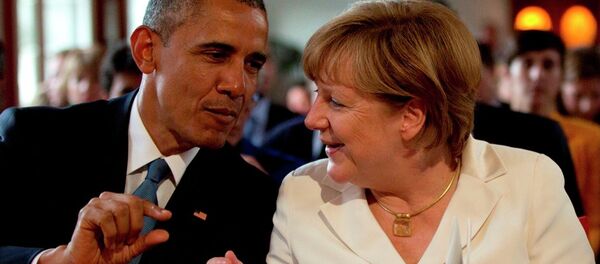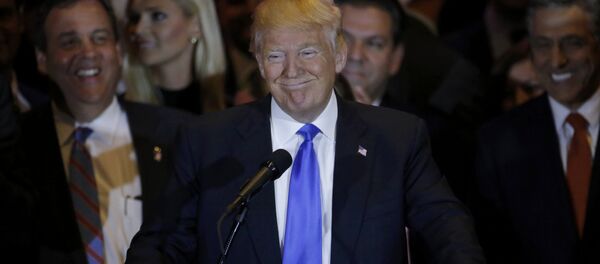"For more than a century," the analyst recalls, "in an attempt to explain and therefore anticipate US foreign policy, we have been visualizing a struggle between the isolationists and the interventionists. The former adopted the line of the 'Pilgrim Fathers', who fled old Europe to build a new world based on their religious beliefs, and [were] therefore distant from European cynicism. The latter, the tradition of certain of the 'Founding Fathers', intended not only to seize their independence, but also to pursue the project of the British Empire for their own benefit."
"Today," Meyssan notes, "this distinction has lost almost all validity, since it has become impossible to live in autarchy, even for a country as vast as the United States. Although it has become commonplace to accuse one's political adversaries of isolationism, no US politician – with the exception of Ron Paul – now defends such an idea."
Instead, the analyst explains, "the debate has shifted to a confrontation between the partisans of perpetual war and the adepts of a more measured use of force." This debate, he notes, citing the work of American political scientists Martin Gilens and Benjamin Page, comes down to the conflict between the competing interest groups who decide US policy, "independent of the desires of its citizens."
"In this debate," Meyssan suggests, the fight for influence boils down, "on the one hand, [to] the military-industrial complex, which dominates the US economy and whose interest is to pursue a state of 'endless war', and, on the other, the 'toll' companies (software, high tech, entertainment) who, although their production is more virtual than real, make their money wherever the world is at peace" (the latter is also referred to the quaternary or knowledge-based sector).
Against this trend, the US ended up not only increasing its own production of hydrocarbons, but "took control of the hydrocarbons in the Gulf of Mexico," thus reducing the relevance of the 'Carter Doctrine', "which treats access to hydrocarbons from the Greater Middle East as a question of national security."
What is the Obama Doctrine?
In a series of interviews for The Atlantic, published last month, Barack Obama attempted to explain to journalist Jeffrey Goldberg the foreign policy doctrine that lies behind the last seven years of his own presidency. On Syria, Obama vigorously defended his decision not to interfere in the conflict directly, despite intense foreign and domestic pressures to do so.
"The president," Meyssan paraphrases, "stressed that the United States had no interest in risking the lives of its soldiers in this conflict, and that he had chosen to economize their forces in order to face genuine threats against US national interests…What are these 'genuine threats'? The president didn't say. At best we can look at the work of the US National Intelligence Council and the preceding remarks on the power of the interest groups."
A closer look, the analyst suggests, seems to reveal that what "we [are] witness[ing] is the return of the 'Wolfowitz Doctrine'," the name given to the secret foreign and defense policy document authored by neoconservative analyst Paul Wolfowitz and adopted as policy in the immediate aftermath of the Cold War.
And "while the Pentagon has abandoned the neo-conservative lunacy concerning the destruction of China, it nonetheless intends to restrict Beijing to an entirely economic role, and to prevent it from applying any political influence outside its frontiers."
However, at first glance, Meyssan notes, the processes taking place today seem to contradict the intentions of the Asia Pivot. "The United States has certainly increased their presence in the Pacific slightly, but has above all set up a strong military presence in Central Europe. While war is still raging in Palestine and Yemen, in Syria and Iraq, and threatens to inflame Libya, a new conflict has begun in Ukraine."
This buildup and 'evolution' in Washington's thinking has two competing explanations, according to the analyst. The first implies the intention to fabricate a "Russian pseudo-threat to Europe, with its sanctions and counter-sanctions, which will allow the United States to 'protect' their credulous allies."
China's attempt to achieve "freedom from US trusteeship," Meyssan writes, is at the heart of President Xi Jinping's project, "with the construction of two Silk Roads, one on the antique traces of the route through Central Asia, Pakistan, Iran, Iraq and Syria to the Mediterranean, the other through Russia to Germany." Both of these routes, the analyst adds, have been "interdicted by Daesh in the Levant, and by Ukraine in Europe."
Furthermore, the analyst notes, the control of the routes of global commerce must also be supplemented with the control of financial exchanges. "This is the reason why the US Justice Department has promulgated rules which it is attempting to impose progressively on all the banks of the world. But here too, Russia has set up its own SWIFT system, while China has refused the convertibility of its money into dollars in order to avoid being shackled by US rules."
In other words, Meyssan emphasizes, "if this analysis is correct, the wars in Syria, Iraq and Ukraine will not end until Russia and China have secured another commercial route to Western Europe. On this subject, we can observe the current efforts by the United States to [bring] Belarus into their camp after having opposed it for so long. [It is] a way of consolidating the Ukrainian firewall and ensuring hermetic compartmentalization between Western and Eastern Europe."
What Comes After…
"The preceding remarks," Meyssan notes, "do not reflect the current presidential [race] in the United States," which pits "the military-industrial complex and WASP ideology, represented by Hillary Clinton," against "the 'toll' industry and social pact of the 'American Dream' represented by Donald Trump. The violence of this campaign attests to the necessity of re-balancing these forces after a period of the exclusive supremacy of war-mongering since 1995."
"It will then become especially difficult to predict US foreign policy," Meyssan concludes.

